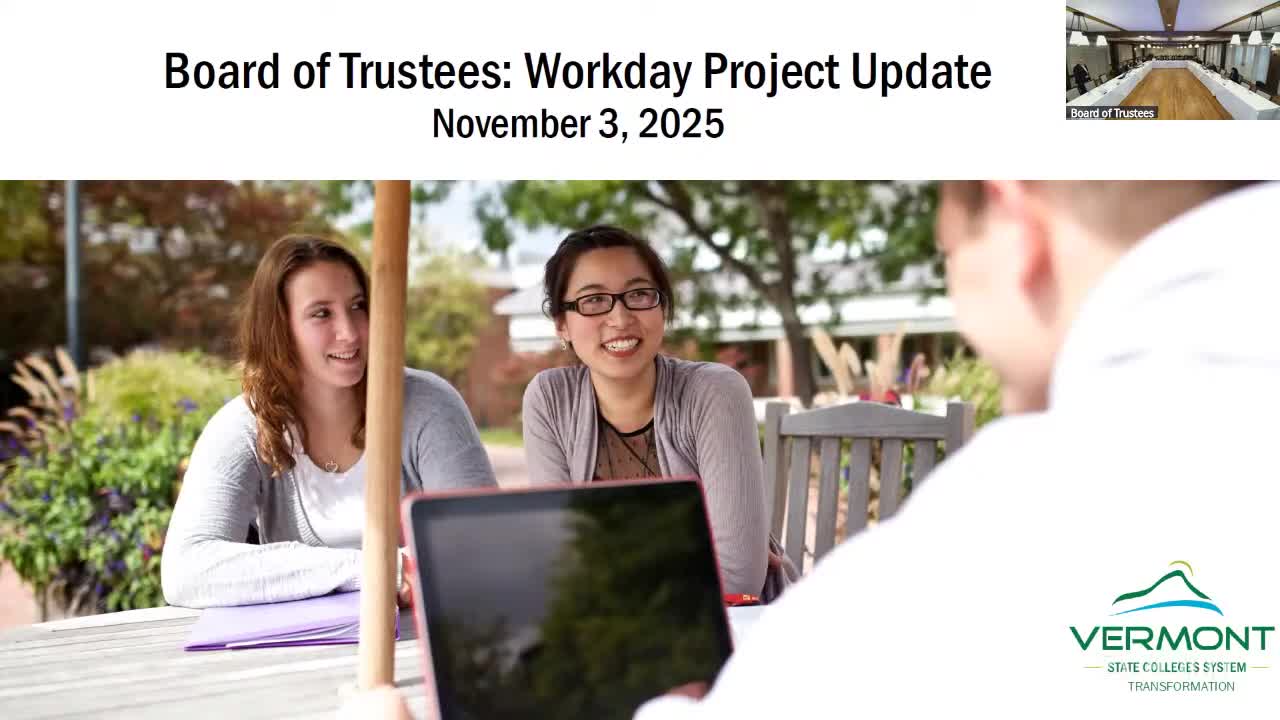Board hears Workday update; steering committee recommends multi-entity student approach and a $1.6M change-order estimate
Get AI-powered insights, summaries, and transcripts
Subscribe
Summary
Chief Information Officer Wilson Garland updated trustees on the Workday ERP rollout and said the steering committee recommends a multi-entity approach for the student system; Workday provided a fixed-fee change-order estimate of about $1.6 million.
Chief Information Officer Wilson Garland gave a detailed update on the systemwide Workday enterprise resource planning implementation, emphasizing implementation phases, key risks and a steering‑committee recommendation for the student module.
Garland described the project structure: phase 1 covers finance, human resources and payroll and is approaching end-to-end testing later this year; phase 2 covers the student information system and is planned to be built beginning early next year with an initial launch for applicants in 2027 and fuller student use by 2028.
The steering committee completed an operational and academic alignment assessment over the summer and recommended a multi-entity Workday configuration for the student system rather than a single-entity model. Garland said a single-entity approach would have required a third-party financial-aid system for the system’s configuration, adding complexity and cost. Workday prepared a change-order estimate for the multi-entity student implementation: a fixed-fee change order of approximately $1.6 million. Garland said the multi-entity path, together with avoiding a third-party financial-aid vendor, effectively saved roughly $600,000 against earlier contingency assumptions.
Trustees spent substantial time discussing project risks and readiness: limited internal staff capacity, the need for data-cleanup and conversion (particularly payroll and HR data), integration complexity with vendors (payroll, benefits), and change management for managers and supervisors who will shift from manual processes to system-driven workflows. Trustees and staff discussed the need to scale training, to identify and support “super users,” and to ensure payroll testing cycles are completed before go‑live because payroll errors carry high risk.
Garland said the project has added consultant and Workday professional services resources and that the change-order estimate reflects increased hours for delivery support, technical consulting and data conversion. He noted that part of the original project contingency accounted for a potential multi-entity approach and that the steering-committee work was performed to ground the scope before issuing a formal change order.
The board did not take a final funding vote on the student change order during the session; trustees instructed staff to continue preplanning and to return with required procurement or change-order approvals as needed.
